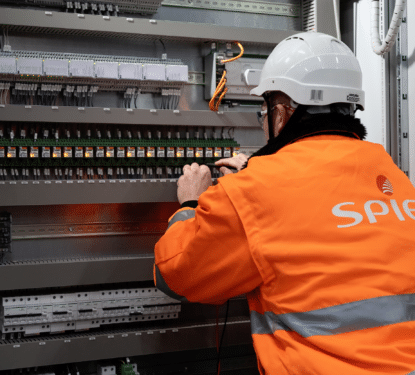“The Paris Agreement has sent a signal around the world. A new energy system is emerging. It will unfold over decades, moving at different paces in different places. The transition offers challenges, opportunities and tough choices for governments, businesses and customers,” states the Shell Energy Transition Report.
Royal Dutch Shell, the British-Dutch oil and gas supermajor, may not be the first name that comes to mind when considering renewable energy and energy efficiency technology but they operate in the energy industry and this is the future of energy. The company has actively begun its transition to low carbon energy through their New Energies division, supporting a variety of clean energy initiatives with their huge financial resources. In their strategy to be both hero and villain of the environmental battle, they will simultaneously be funding clean energy and continuing their oil and gas operations. At least in the short-term.
“For Shell, this means that we will continue to sell the oil and gas that society needs, while preparing our portfolio to move into lower-carbon energy, when this makes commercial sense,” the company states. “In the medium-term, Shell will grow its business in areas it expects to be important in the energy transition, while reducing costs and improving our CO2-intensity performance. Longer term, there is great uncertainty, but we believe Shell’s strategic flexibility will allow us to adapt in step with society,” they continue.
Their latest foray into the cleaner side of their energy business brings them into the smart building industry. Buildings account for 40% of all energy consumption and increaasing efficiency of building therefore represents the low-hanging fruit for our transition to a cleaner energy society. The leading buildings in the world today are achieving zero energy through a combination of energy efficiency measures, renewable energy and energy storage but this is only feasible for the biggest and best-funded projects.
The vast majority of building stock do not have the capital to knock down and build clean smart buildings, or even to retrofit their current facilities. This is what Shell’s new partnership seeks to solve.
On November 15th, Shell announced a partnership with smart building solution providers Sparkfund and GridPoint. The offering is a subscription approach to smart buildings and pairs technologies such as HVAC, lighting, energy storage, electric vehicle charging, and building controls together with retail power supply and demand response.
Sparkfund is an energy technology subscription company based in Washington, D.C. They give customers access to essential building energy functions like cold air, light, and resilience to blackouts without the constraints of ownership, so they can do more energy projects, faster, and with fewer resources.
Follow to get the Latest News & Analysis about Smart Buildings in your Inbox!
“We are very excited to be launching Shell Energy Inside in North America with GridPoint and Sparkfund as founding partners,” said Brian Davis, Vice President of Energy Solutions at Shell during the announcement. “This offering enables us to help businesses meet their cost, sustainability, and resiliency goals. Today’s announcement is in line with our strategy to partner with leading companies to deliver more and cleaner energy solutions to new and existing customers.”
The bundled solution is powered by Sparkfund’s subscription engine, SparkOS, along with GridPoint Energy Manager, GridPoint’s controls and analytics platform. The offering has been made available to all commercial, industrial and municipal customers in North America. They hope that Shell’s experience and resources, paired with these key partnerships, uniquely positions Shell Energy Inside to redefine how commercial energy solutions are delivered.

"This is a historic moment, with one of the largest energy entities in the world working to reimagine the future of energy and energy services. We’re excited to support this offering with our subscription engine, SparkOS,” said Sparkfund CEO Pier LaFarge. “Shell is breaking down the walls between once-siloed energy solutions to create one, converged offering that results in a more powerful product and customer relationship,” added Mark Danzenbaker, CEO of GridPoint. "We are thrilled to be part of this ground-breaking team."
Investments by oil and gas majors in renewable energy and energy efficiency start-ups should not be a surprise. In fact, it makes business sense for them to become vertically integrated energy companies through such investments. What is surprising is the pace of these developments are happening. Shell established its New Energies division just two years ago, in 2016, and plans to invest up to $2 billion per year through 2020. To date, it has invested in companies including battery company sonnen, EV charging company NewMotion, and another subscription energy provider, Inspire.
This move into smart buildings may seem a stretch further from their core business but it actually makes complete sense, from a business and environmental perspective, to tackle the problems of consumption. By enabling better subscription based smart building offerings we bring smart energy efficiency to the mass market, the vast majority of buildings, and with that, we can begin to make a real dent in our much power we consume as a society. This is a market ripe for investment and driven by the huge energy savings that can be achieved.
Shell and other major oil and gas companies are central to the causes of climate change and environmental degradation around the world. They hid the environmental cost of fossil fuel consumption for decades before the environmental movement took shape. Many might have them cease fossil fuel operations and donate all funds to environmental causes but perhaps it is an even more powerful transition for them to use their resources to support the most promising clean technology start ups in changing the energy landscape.



